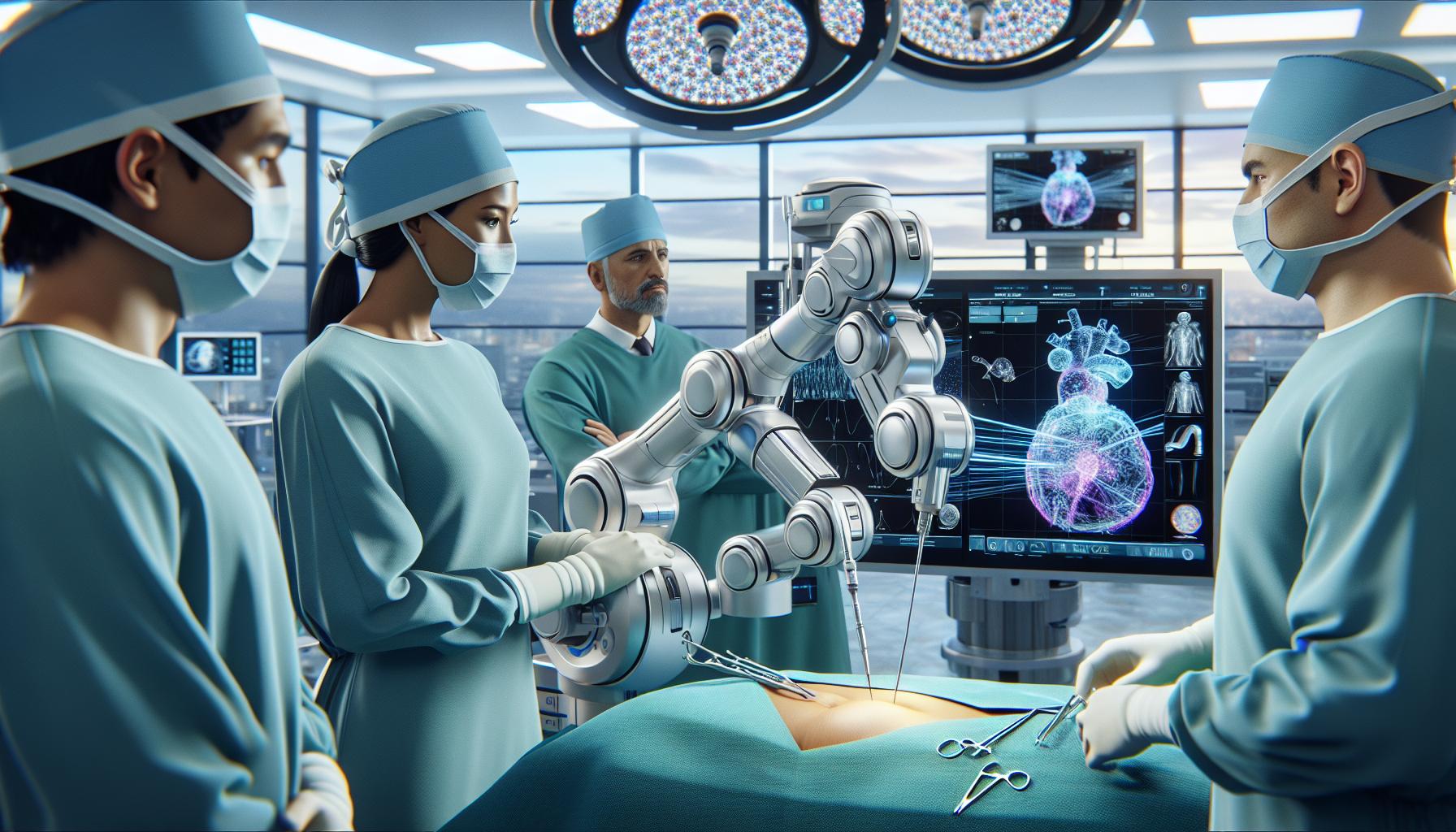Robotic Surgery: How AI is Making Surgical Procedures Safer and More Precise

Introduction
The advent of Artificial Intelligence (AI) has permeated nearly all aspects of human life, and the field of surgery is no exception. AI-driven robotic systems are transforming the landscape of surgical procedures, offering unprecedented levels of precision and safety. These advancements are not only improving the accuracy of complex operations but also significantly reducing the risks associated with traditional surgical methods. This article delves into the latest developments in AI-assisted robotic surgery, showcasing successful surgeries and examining the benefits and challenges of integrating AI into surgical practices.
The Evolution of Robotic Surgery
The concept of robotic surgery is not entirely new; it has been evolving for decades. Initially, robotic systems in surgery were primarily used to provide enhanced dexterity and control to surgeons. However, with the integration of AI, these systems have gained new capabilities, such as real-time data analysis, machine learning algorithms for decision-making, and advanced imaging technologies.
One of the most groundbreaking advancements in this field is the development of the da Vinci Surgical System. This AI-powered robotic system allows surgeons to perform minimally invasive procedures with remarkable precision. The system's robotic arms can mimic the delicate movements of a human hand but with far greater accuracy, reducing the margin for error.
How AI Enhances Surgical Precision
AI enhances surgical precision in various ways. By integrating machine learning algorithms and real-time data analytics, AI-driven robotic systems can provide surgeons with critical insights during an operation. These insights include identifying the exact location of tumors, calculating the optimal angles for incisions, and predicting potential complications.
For example, AI can analyze preoperative imaging data to create a detailed 3D map of the patient's anatomy. During surgery, this map can guide the robotic arms with sub-millimeter accuracy, ensuring that even the smallest structures are handled with care. This level of precision is particularly beneficial in neurosurgery, where even the slightest error can have significant consequences.
Success Stories in AI-Assisted Robotic Surgery
Several success stories highlight the efficacy of AI-assisted robotic surgery. One notable example is the use of AI in cardiac surgery. Traditionally, heart surgeries involve high risks due to the complexity of the cardiovascular system. However, AI-driven robotic systems have made it possible to perform intricate procedures, such as valve replacements and coronary artery bypasses, with a high degree of precision and reduced risk.
Another success story comes from the field of orthopedic surgery. AI-assisted robots have been used to perform knee and hip replacements with remarkable accuracy. These systems use AI to analyze the patient's biomechanics and create a personalized surgical plan. The result is faster recovery times and improved outcomes for patients.
Benefits of AI in Surgical Practices
The integration of AI in surgical practices offers a multitude of benefits. First and foremost is the increased safety for patients. AI-driven robots can perform surgeries with a level of precision that significantly reduces the risk of complications. Additionally, these systems can operate in minimally invasive ways, leading to smaller incisions, less blood loss, and quicker recovery times.
Another benefit is the reduction in surgical fatigue and human error. Surgeons are human and can become fatigued, leading to mistakes. AI, on the other hand, can work tirelessly and with consistent accuracy. This reliability is particularly valuable during lengthy procedures that require sustained focus and precision.
Furthermore, AI can assist in preoperative planning and postoperative care. By analyzing vast amounts of data, AI can help surgeons develop more effective surgical plans and monitor patient recovery more closely. This comprehensive approach to patient care enhances the overall effectiveness of surgical procedures.
Challenges and Ethical Considerations
Despite the numerous benefits, the integration of AI into surgical practices is not without its challenges. One significant concern is the high cost of AI-driven robotic systems. These advanced technologies require substantial investment, which may not be feasible for all healthcare facilities.
Another challenge is the need for specialized training. Surgeons and healthcare providers must undergo extensive training to effectively use AI-assisted robotic systems. This training period can be both time-consuming and costly, adding another layer of complexity to the adoption of AI in surgery.
There are also ethical considerations to take into account. The use of AI in surgery raises questions about accountability and responsibility. In the event of a surgical error, it can be challenging to determine whether the fault lies with the human surgeon or the AI system. This gray area complicates the legal and ethical landscape of AI in healthcare.
The Future of AI in Robotic Surgery
The future of AI in robotic surgery looks promising. Ongoing advancements in machine learning, data analytics, and robotic technologies are expected to further enhance the capabilities of AI-driven surgical systems. Researchers are exploring the potential of AI to perform fully autonomous surgeries, where robots can carry out procedures with minimal human intervention.
Moreover, as AI technology becomes more accessible and affordable, it is likely to see widespread adoption across various medical fields. This democratization of AI-driven robotic surgery could lead to significant improvements in patient outcomes on a global scale.
In conclusion, AI-driven robotic systems are revolutionizing the field of surgery by enhancing precision and safety. From cardiac surgeries to orthopedic procedures, AI is enabling surgeons to perform complex operations with greater accuracy and reduced risk. While challenges and ethical considerations remain, the potential benefits of integrating AI into surgical practices are immense. As technology continues to advance, AI-driven robotic surgery is set to become an integral part of modern healthcare, promising a future where surgical procedures are safer, more precise, and more effective than ever before.




